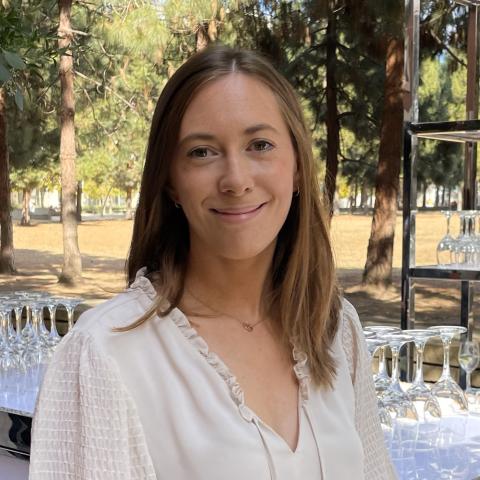
Meet Dr. Eleanor Palser

Dr. Eleanor Palser
For Dr. Eleanor Palser, Assistant Professor at PAU, understanding emotional differences in neurodevelopmental disorders is about more than just research—it's about reshaping how we view and support neurodivergent individuals.
"Through working closely with autistic youth and listening to the experiences of autistic adults, I have come to think that our current conceptualizations of autism as a condition of blunted affect, or an empathy deficit, are misguided and likely harmful," Dr. Palser explains. Her research combines qualitative interviews with psychophysiology to map a more comprehensive and less biased understanding of affect in autistic people.
This commitment to challenging traditional perspectives extends to her advocacy for strength-based approaches in understanding neurodevelopmental disorders. "So much of what we tell children and families focuses on what they find hard. But this is only one aspect of a person," she notes. "Children, by their nature, are incredibly adaptive and resilient. Emphasizing that they have strengths that they bring to the world, as well as difficulties, hopefully steers them towards harnessing those strengths to live as fulfilling a life as possible."
Her recent research explores fascinating connections between dyslexia and creativity. "There are some really interesting statistics that suggest people with dyslexia are over-represented in certain careers, including entrepreneurship, acting, and art," she says. This observation led her to investigate whether people with dyslexia might have tendencies toward greater creativity and empathy due to subtle differences in the nervous system.
As Director of the Pediatric Behavioral Health emphasis at PAU, Dr. Palser is responding to urgent contemporary challenges. "The U.S. Surgeon General has declared a youth mental health crisis, and the general public appears to share this pessimism," she says. "My primary goal is to train a behavioral health workforce that is well-positioned to address this crisis." Her program integrates emerging issues facing today's youth, including social media impacts, increasing school pressures, and climate change anxiety.
Dr. Palser's path to academia as a first-generation college student has shaped her perspective on diversity in higher education. "At the time, there wasn't so much discussion about the impact of being a first-generation college student," she reflects. "This has made me particularly interested in understanding the issues faced by those with perhaps less apparent minority identities, such as students and academics from lower socio-economic backgrounds or who have learning disabilities."
Her background in cognitive neuroscience brings valuable insights to her work in developmental psychopathology. "It has taught me that when thinking about conditions that originate in childhood, a single underlying neurobiological cause does not exist 99% of the time," she explains. "Even the expression of one's genes is influenced by environmental factors. Thinking about systems and vulnerabilities, as opposed to nodes and causes, will likely prove more productive."

Dr. Palser and Duke
When not researching or teaching, Dr. Palser finds balance through outdoor adventures with her Australian Shepherd, Duke. "I find our Northern California forests and mountains particularly nurturing," she shares. She's also an avid traveler, currently planning a trip to Egypt where she looks forward to "disconnecting while sailing down the Nile, learning more about modern Egyptian culture, and experiencing the awe of coming face-to-face with the beautiful ancient monuments."
Looking to the future of neurodevelopmental research, Dr. Palser is encouraged by increasing involvement of people with lived experience in research design. "That will help to ensure research is designed in ways that are actually helpful to people who have neurodevelopmental disorders," she says. In her own lab, she focuses on tailoring measures and interventions to better serve neurodiverse populations with the goal of improving their well-being.
For Dr. Palser, teaching the next generation of clinical psychologists is particularly rewarding. "Our students have lived experience, are attuned to social determinants of health, and better represent the populations that we aim to serve," she notes. "They do not shy away from controversial topics, but instead approach learning opportunities with humility and curiosity. I am consistently buoyed by my students' enthusiasm and insights."
